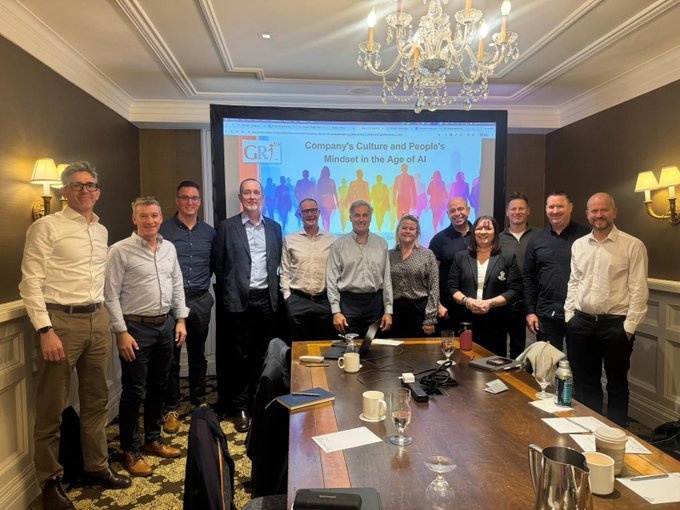Finding Purpose in Our Work
Posted by Frederic Lucas-Conwell

Finding Purpose in Our Work
The need for purpose in our work is an important part of our behavioral/emotional makeup.
Having a purpose to our lives, derived from the work we do, or aligned with our work, is not a new idea. But the modern labor market continues to be uncertain and unstable, and with the recent advent of new information technologies and hybrid work, tenures at companies have dropped dramatically.
There is a growing need in our economy today for everyone to take charge of his or her purpose in life and work. This sentiment suggests a role for society to help provide everyone with the opportunity to identify, develop, and take charge of their purpose.
Discovering our destiny in life and being accountable for it requires a greater understanding of the components that catalyze and cultivate purpose. If we want to embrace life fully and find success at work, we need additional insight into who we are and how that impacts the work we do.
Everyone’s Sense of Purpose Grows Differently
What is meaningful and purposeful to us most often follows from the same interests and skills that propel us to succeed in our job. Purpose with minimal interest and no skill is no purpose at all, and can grow in neither quality nor intensity if we are not in contact with the right situations and people.
A good place to start discovering how we can improve our sense of purpose and our ability to express it is by looking at our most naturally expressed behavior as we assess it at Growth Resources with a behavior factor approach. The factors and their positions indicate our behavior, motivation, and needs, how intensely they are expressed, and how they apply to setting our goals and growing our interests, skills, and sense of purpose.
Additionally, how we perceive to adapt to the environment and how this results in more effective behaviors tell us how we are stimulated today by our job and the environment in general. This is another important piece of information about how our sense of purpose is taking shape right now, either in a fulfilling way or not.
As can be readily evidenced, different jobs have different behavioral characteristics and offer different opportunities to grow our sense of purpose. For instance, certain jobs require deep, precise knowledge; other jobs require frequent and skillful interactions with customers, such as coaching and mentoring. Others again require repetition and consistency over time.
An advanced and nuanced way to develop purpose requires looking at all the components outlined above from a behavioral standpoint. The understanding of our strengths and motivations adds to the comprehension of our behavior patterns and helps explore what gives us purpose.
Having better awareness and control over our emotional patterns, knowing how we perform best, and cultivating our sense of purpose are at the core of a behavioral approach based on factors. You have better chances of realizing your purpose in an environment that positively values and shares information about your behavioral pattern.
What we observe at Growth Resources is that most often the hiccups that negatively affect a person’s sense of purpose come from a job and expectations that are at odds with their most naturally expressed behaviors. We may immerse ourselves in situations that are not a fit with our natural behaviors because we have to, or because we are being supported to do so without realizing that there may be more fulfilling options.
Our Core Behavioral Pattern and Emotional Awareness
The key in the above-described process is to be aware of our own specific needs and intrinsic motivations which are both tightly connected to how we function from a behavioral and emotional standpoint. Our unique way of performing, what engages and motivates us, directs us to build a positive, practical sense of purpose that can easily be shared with others.
Knowing how you respond to a given environment, are intrinsically motivated, and set your goals—essentially knowing yourself better—is part of the journey to success. Determining what your organization needs from you in terms of how you act is critical.
A behavioral factor approach emphasizes the importance of realizing our potential limitations, how to overcome them, our need for support, and our unlimited capacity to grow. The behavior factor approach offers precision and nuances that paint a more complete picture of how we can find purpose, perform and succeed on our terms with our teammates and organization.
Ensure Others Understand Who You Are
Applying the full scope of your training, skills, experiences, and intelligence is a necessity in whatever position you hold. At the same time, performance and success involve many more variables, partly personal and partly environmental.
When you tell the people in your environment how you best perform, there is a better chance that they will discern and value your style. You similarly raise their awareness of their distinct way of performing, setting and reaching goals effectively, and experiencing both individual and collective success.
Share your behavior profile with your team, your manager, board of directors, professor, or peers, and explain the behavior and motivation that drives your work. This will help everyone gain a positive interpretation of your unique opportunities for success.
Unless we work to understand ourselves and then make sure others understand who we are too, we will often find that others more or less expect us to behave the same as they do. However, how they operate never works the same way it does for us.
When those insights are not positively shared, others will likely have no idea—or a limited awareness—of how you and everyone else are most comfortable expressing and developing themselves. The factor approach, as we do with GRI, allows you to clarify this.
The great benefit of the GRI's factor approach is to get to understand better who we are and how we grow. It helps point out what we like and dislike, and what we want to find in our job. It helps us make decisions for our career. It’s impressive to see that, from just two questions, we can now put words on what we knew but could not figure out about ourselves. — Alexander T., Business owner
Latest Articles
Groupama Successful Transformation in Romania: The GRI, Catalyst for Profound Change
The history of Groupama in Romania is an eloquent testament to resilience, strategic vision, and the transformative impact of innovative management tools. Arriving at the...
Hybrid Work: A Management Revolution
The COVID-19 pandemic has acted as an unprecedented catalyst, radically transforming our approach to work. What was once a marginal practice has become the norm for many...
Leadership 3.0: Objective Insights for People-Centric Leaders
Steve, a brilliant entrepreneur, poured his heart into his work. His team at "Innovatech" was on the brink of a major breakthrough, a new app that promised to revolutionize...



